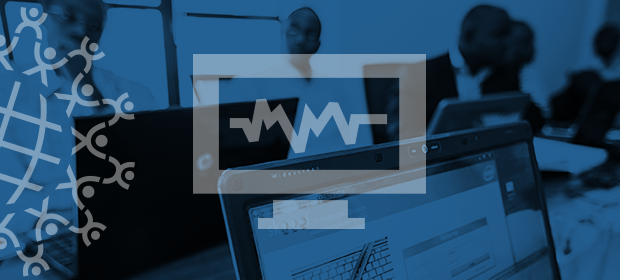Where We Work
See our interactive map


If anything positive has come out of the ongoing Ebola crisis in West Africa, it’s that we can finally put to rest a longstanding debate—namely, whether it’s more effective in global health to focus on specific issues (such as HIV and maternal health), or to take a systems-based approach, looking at the whole of a country’s capacity to provide health care to its people.
Ebola has given us our answer: we need both.It’s how we’ll get to zero cases of Ebola. And it’s the only way we’ll be able to prepare for the next Ebola. By building a bridge between these two worlds, we’ll not only be ready to address the issues, we’ll have the systems in place to succeed.
Done well, mobile health—or mHealth—and information and communication technology (ICT) can help us get there.
We need to shift our emphasis to data use.
In Wilton Park, UK, last month, a diverse group of techies, policy-makers, government workers, NGOs, and private-sector organizations gathered for (Re)Building Health Systems in West Africa to focus on the role mHealth and ICT could play in West Africa’s recovery efforts, and beyond.
The event was inspired by the quick Ebola-response work of organizations such as IntraHealth International and mPowering Frontline Health Workers, with support from USAID, UNICEF, and others, with tools such as mHero that West African countries could use to rally their health workers during the crisis and as they eventually recover from the epidemic.
This technology allows us to reach frontline health workers who were previously inaccessible, even isolated. mHero and other mHealth tools let officials send and receive information, make more informed decisions, and update health workers’ training and skills from thousands of miles away. This is helping as countries recover from Ebola, but it can also help with any priority health issue a health sector is facing.
As a result, health officials today can collect more and better data on the health workforce than ever before. And those data are key. They can help countries plan for the future, pinpoint emerging health threats, and determine which types of health workers they need more of and where.
We also do the much-needed work of making sure the health information systems we put in place to store these data are interoperable, or able to communicate with one another.
Should we continue to rush headlong into developing fancy new gadgets and software?
While the global health field enjoys a proliferation of new digital-based technologies and platforms, the emphasis so far has been on data collection.
But now we need to shift that emphasis to data use.
Data Too Often Lie Dormant
While the advent of digital solutions has greatly improved the techniques and quality of data collection, those data too often lie dormant in government databases, left to departments that may not be prepared to use or disseminate them properly.If we’re going to take full advantage of technology’s promise in building stronger health systems, there are three challenges we must face:
So should we continue to rush headlong into developing fancy new gadgets and software? Or should we organize the data we’ve collected and use them to scale up the solutions we know to work? And how?
There’s great value in letting a thousand flowers bloom, as techies and social entrepreneurs create anew.
I’m of two minds. There’s great value in letting a thousand flowers bloom, as techies and social entrepreneurs create anew. But we also run the risk of counterproductive competition. So let’s prioritize scaling up interoperable systems and using the data we’ve already collected.
We may find answers—and surprises—in the wealth of untapped data that are already out there.As Paul Biondich says, interoperability is less about technology than it is about people and their willingness to work together. To reach a state of information liquidity—that is, a free flow of information and data that can help build stronger health systems around the world—we need to come together and embark on a decade of data use.
Get the latest updates from the blog and eNews




